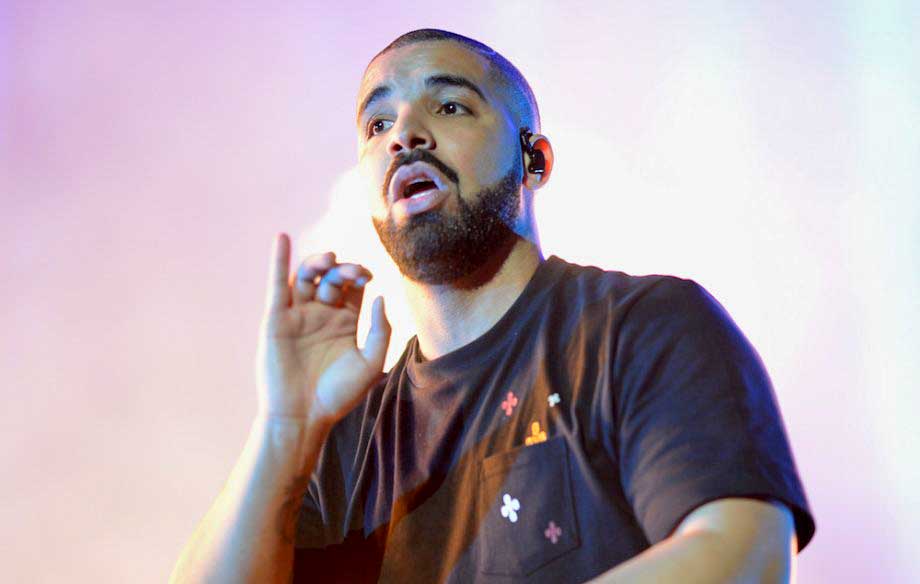
c/o NME.com
Drake is one of the most popular artists in the world, a perennial rap chart-topper, and a powerful figure in music. No one could question his success or popularity, but what is he made of? Why is he so successful?
The Toronto rapper certainly has qualities that set him apart from others. I see Drizzy as having two major strengths: the ability to adapt to changes in the rap landscape, and the ability to create iconic lines. Over time, Drake hasn’t been much of a driving force in rap; rather, he’s been the best shapeshifter the industry has likely ever seen. When major players like Kanye, Lil Wayne, Gucci Mane, made waves in the genre, Drake was close behind them, perfecting the path that they paved. He has a knack for taking new styles not created by him, adding his platinum hit-making style to them, and bringing the result into the mainstream.
Take his 2015 album, If You’re Reading This It’s Too Late. The album shows a clear transition for Drake in the earlier days of the trap boom. “Know Yourself” gives us a rolling trap beat with a legendary switch up, something that has become even more popularized in today’s rap. Songs like “Energy,” “6 God, 6 Man,” and others show an early emanation of the dark trap song phase of 2015 and 2016. The 14th track, “Company,” shows the promise of the spacey trap wave that was pioneered by Kid Cudi and Kanye West, and has seen a huge rise in popularity due to emerging stars like Travis Scott.
If You’re Reading This It’s Too Late is a pretty large style leap for Drake coming from his 2013 album, Nothing Was The Same. While Nothing Was the Same showed some connection to early popular trap with “Started From The Bottom,” for the most part we see a Drake who last existed when Meek Mill was still relevant. Songs like “Worst Behavior” show the echoes of the short-lived Maybach Music era of hard, somewhat dark yet energizing rap songs, which have not survived in today’s rap market.
In other words, we saw Drake, within only a two year period, shift his style away from a dying, dated rap sound and towards a burgeoning sound that is still relevant three years later. Artists like the aforementioned Meek Mill, who have failed to effectively adapt to the times, show the significance and brilliance that Drake has to continually find in order to recreate himself and stay relevant. His 2018 album Scorpion sold 749,000 copies in its first week; Meek Mill’s 2017 album Wins and Losses sold 102,000 in its first week, and his 2018 EP Legends of the Summer sold 27,000. While Meek Mill still has a place in today’s hip-hop world, he’s nowhere near his 2012 glory days. Drake has continued to change with rap today, releasing a mix of generic hip-pop like “In My Feelings,” some Drake “dancehall music” slow jams that no one really asked for like “Summer Games” and “Finesse,” and pop-trap hits like “God’s Plan” and “Mob Ties.”
While Drake’s changes keep him poised for relevancy, his ability to craft iconic rap moments is perhaps the reason why he’s been so consistently in the spotlight. This year’s “God’s Plan” showed this, becoming a monumental success mainly due to one such moment, and going 7x platinum in about four months. The now incredibly over-played beat pause and drop, paired with Drake telling us about his bed and his mama, made for a culturally iconic rap line; you couldn’t go a full week without seeing a group of white teens bumping this song on a snap story.
Not all of Drake’s “iconic lines” become iconic; in fact, numerous attempts at manufacturing this sort of phenomenon go largely unnoticed. His sentimental question to Kiki on “In My Feelings” just recently fizzled out after a month or two in the social media spotlight. Scorpion’s “That’s How You Feel” was released to a similar reception; sitting at 45 million plays on Spotify, it is among the more popular members of the set of songs that people pretty much only listened to for a couple of days after the album’s release. It has nowhere near the monumental success of “God’s Plan” (with over a billion plays), or even “In My Feelings” (with over 600 million). While not very successful, it boasts a melodic Drake chorus that he surely imagined in the background of a Friday night snap story; it just never managed to take off. “8 Out Of 10” (with 60 million plays) shows a similarly failed attempt to produce this kind of sensational Drake Moment; about a third of the way into the song we get a beat fade out to solo piano, followed by some oh-so-menacing talk-rapping, and finishing up with a “God’s Plan” like timed drop and beat return. Sadly, there wasn’t enough instant hit ability to go around, and these didn’t make the cut.
While Drake might not be the most creative artist working today, he’s undoubtedly important. By adapting and creating hits on an industrial level, he has claimed the rap sales crown, and doesn’t look to be going anywhere anytime soon. Not everything he touches is destined for greatness, but his collection of iconically quotable lines has solidified his place in rap history.
Alex Rogers can be reached at aarogers@wesleyan.edu.
Comments are closed